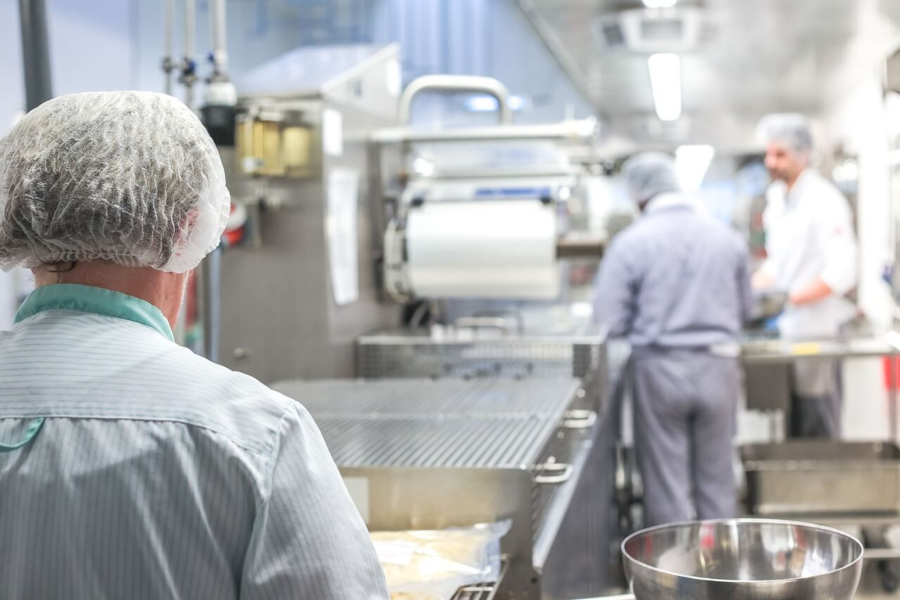Starting out in the rental kitchen can be a daunting task – particularly if this is your first step in commercialising your business. Licensing a kitchen can be a fantastic solution for all kinds of food brands, from home bakers looking to grow to delivery only businesses and caterers. Catering kitchens are also a great way to test your product before tackling the overheads of a restaurant.
Whatever your reason for looking to rent a kitchen, commercial kitchen licensing will still be a significant outlay and as such it is important to make sure that you make the right choice for you and your business.
In this article we offer what you need to consider before you start your commercial kitchen search, what you have available to you, and things to look out for in your contract terms before signing on the dotted line.
Assess Your Needs

How Much Space Do You Need & Does It Need To Be Full Time?
One of the bonuses of renting a commercial kitchen is that you can make savings by paying for the time you are using the space, rather than for a full-time rental or committing to a front of house option.
Have a good think about the hours that you actually spend prepping and cooking, and then consider when in the day you need to carry out these tasks. For example: a bakery will have very different hours to a pizza delivery company or a market food stall.
As well as the hours you will be working, consider when you want to access your kitchen. FoodStars kitchens have 24 hour access, even if you are on a part time contract, but this might not be the case for every catering kitchen rental.
How Much Will You Need To Produce (And Sell) To Profit?
When working out your hours of business, you will need to be considering how much you need to sell to make a profit. Our recent interview with George Streatfield of Gym Food highlighted how easy it is to underestimate the amount of food that needs to go out the door to make a decent return, especially as a fledgling food business, so it is worth really doing your homework on this one.
Consider how the quantity that you are looking to produce will affect the amount of oven, work surface and refrigeration space you might need. The size and type of commercial kitchen you need to rent will have to be sufficient to make this cost effective and feasible.
What Equipment Will You Bring & What Should Be Pre-Installed?
You should have a good idea of the equipment inventory you need. When planning this you need to factor in your base production estimates, and the amount that you will be looking to scale up.
Some catering kitchens for rent include equipment and some don’t so it’s important to check what comes as standard and what is available at an additional cost. You should also consider if it’s cheaper for you to supply your own equipment – though remember, the whole reason for going into a commercial space is to get the scale and quantity of food produced at a commercial rate – which should mean having commercial sized equipment rather than domestic appliances.
Standard items like fridges, cookers and waste bins should be included in your kitchen rental. But if you produce any specialty items that need niche tools, you might need to supply them yourself. Similarly, you should consider how many of each item you might want, depending on the amount of people you have working for you.
What Does Your Location, Location, Location, Say About Your Business
We discussed in a previous post, What Does Your Choice Of Commercial Kitchen Say About Your Business?, that where you set up your business can affect how it is perceived and that the optics need to match with your brand. This focused on three considerations that you need to understand:
- The origin story of your premises
- The sourceability of your goods
- And the mirroring of your brand’s personality in your space
Once you’ve drawn this up, you can narrow down where you are looking which will be a great help if you’re finding you’re getting bogged down by the numerous choices available to you. Remember that some areas will be more expensive, but will be more convenient for deliveries – so it’s up to you to prioritise or compromise these factors as appropriate to your business and its set up.
Varieties Of Rental Commercial Kitchens
There are a few types of commercial kitchen available for rent.

Catering Kitchens
Commercial catering kitchens are like reaching the pearly gates – the size, efficiency and variety of the equipment available to you over a domestic setup will be life changing. Commercial catering kitchens come big and small, so don’t be put off by the concept of “commercial” – it simply means that you can run a slicker operation, possibly more centrally to your established client base.
Dark Kitchens For Food Delivery
If you’re looking to rent a food delivery kitchen, your location will be crucial. Equally, make sure that loading docks for delivery drivers are easily accessible and that there is space for parking – ideally without an additional fee.
Central Production Units
Central Production Units are great for those people that are looking to reduce their current kitchen workspace, either to free up space for more customers or because you would prefer to bring everything together and produce all your food under one roof. Production Units are also great for those people that don’t have the right permissions to produce hot food from their own premises – such as those in an A1 property looking to evolve their business
Part Time or 24 hour? Private or shared?
Catering kitchens can be rented for certain times, as mentioned above, or full time. If you aren’t renting full time then you are likely to be sharing your kitchen space with another business, since it makes sent for the renter to make the most of the commercial kitchen.
Of course, there is nothing wrong with sharing a kitchen, but it is worth finding out who you will be sharing with and how. Shared work spaces can either mean co-working, or working to a shift pattern. If you are in a co-working space, you need to make sure that the business you are sharing with doesn’t produce items that your customers might be allergic to or you claim your produce to be free of.
If you do go for a part time, shared option, make sure you double check exactly how this will work and your rights within that space when you are both present and not as this will affect you, your staff and the way you run your business significantly.
The Legal Stuff

Have You Checked Your Licensing Requirements?
Have you registered your business and do you know the licences that apply to you? You can use the government’s licence finder to work out exactly what you need to have a legitimate food business in the UK, according to the type of food you produce and the way in which you sell it. Make sure that you are clear on the code applied to the type of space you are renting, and that you have detailed this correctly in your registration forms, 28 days before you start trading.
Does Your Space Fit With Commercial Kitchen Regulations?
Starting out on the right foot is essential, and part of the way to do this is to ensure that you know exactly what is required of a commercial kitchen rental set up before going to check it out. This applies to the water, gas, electricity regulations as well as the actual layout itself.
Being a food business carries enormous responsibility as you offer a service that can, if careless, cause detriment to people’s health. As such, there are really stringent rules in place that need to be adhered to for the safety of your staff and your customers, and as you would check for the safety in a flat you rent, you need to do the same for a commercial kitchen.
What Are Your Contract Terms?
It’s not rocket science. As with any business deal you need to read the small print. These questions should be among those that you ask yourself:
- How often do you need to pay rent?
- Is there a break clause?
- What are the terms of the deposit?
- Are there any hidden costs?
- Who is responsible for what?
Whilst it can seem easier just to waive on through a contract because you are in a hurry to get started, the salesperson is charming and the deal seems sweet – it can turn sour very quickly if you haven’t considered these scenarios and where you will stand when they occur. The last thing you want to have happen is for you to find out some months in that there has been an electric fault, lose all of your refrigerated and frozen stock, and then discover that it is your responsibility to replace it.
Where Do I Go From Here?

Of course, with the numerous commercial kitchen options we offer ourselves, we would suggest that if you are looking for a commercial kitchen to license in London, you book a tour of our kitchens and see if you find the right fit for you!
BUT before doing so we strongly recommend you have a good look at your business as it stands currently and how you are looking to grow – thinking carefully about what you need from your commercial kitchen before your hunt begins.
THEN, refer back to this post and make sure you are comfortable with the standard of your kitchen and the terms of your contract before rushing into any decisions – especially if you will be locked in for a certain amount of time.
AND AFTER THAT sit back, relax and watch the beauty of your commercial kitchen’s efficiency unfold…